
About Co-creation project
Co-creation project was implemented as a strategic project of the Research Institute for Humanity and Nature from April 2020 to March 2023. The information on this page describes the project activities while the project was active. Since April 2023, the project has moved to the stage of Completed Research, where the main activity becomes the production of research outputs. This website is currently managed by former members of the Co-creation project.
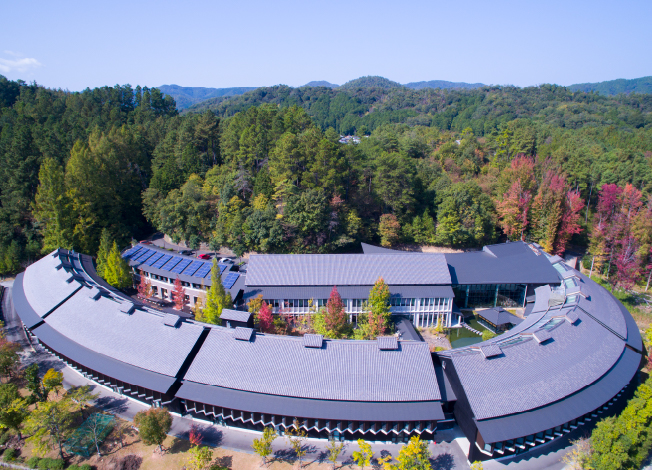
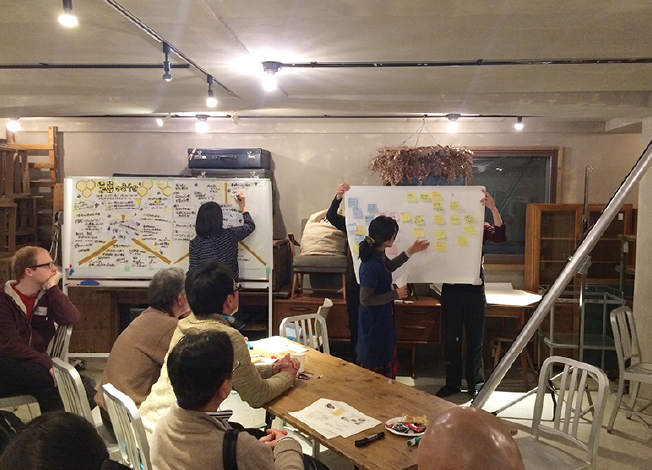
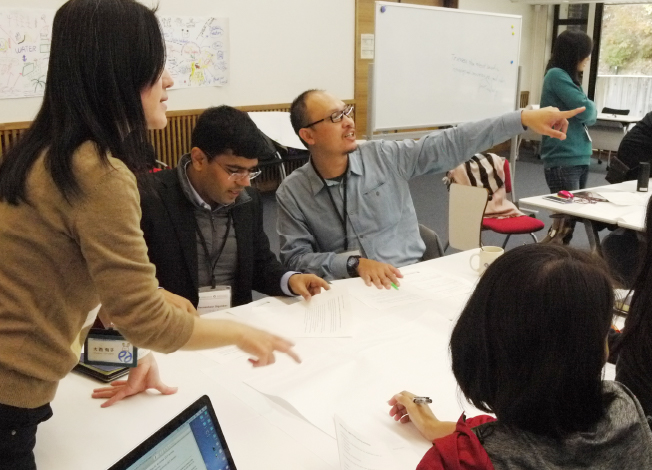
Co-creation project is a research project of the Research Institute for Humanity and Nature (RIHN) in Kyoto, Japan. Our project aims to identify and share tips and methods for knowledge co-creation.
Since its foundation, RIHN has been working on solving environmental problems in collaboration with residents and stakeholders outside of academia using co-creation (or transdisciplinary) methods in Japan and Asia. Environmental problems often involve various groups that have different interests and play different roles; some groups are affected by the problem, while others are involved in causing the problem. To address such problems and conflicting interests, it is important to use co-creation approaches that bring together all relevant stakeholders to collectively define the problem and identify solutions.
However, co-creation can be challenging. In academia, great importance has been put on specialisation, and consequently few researchers have experience collaborating with people from different disciplines or outside academia. Even outside academia, few individuals have the opportunity to work with people from different industries or regions. Participating in co-creation is thus often a new experience for many, and learning typically happens through trial and error.
When I (Yuko Onishi, project leader) first got involved in co-creation projects, I also learned through trial and error. The most useful and practical tips often came from the stories of colleagues rather than from books or academic articles. This is because the right approach to co-creation largely depends on the region and problem: there is no one-size-fits-all manual. However, the insights and skills gained from practicing co-creation are often not disseminated beyond individual projects or are shared with very few people. With this in mind, I started the co-creation project to try to compile the lessons learned from different projects and share these more widely.
In this project, we will review co-creation and transdisciplinary research (TDR) projects that have been undertaken both at RIHN and internationally to clarify and systematise the lessons learned. The aim of this project is to identify a practical framework for TDR that consists of methods and tactics for fostering knowledge co-creation, identified from current transdisciplinarity (TD) practices implemented throughout the world and from the knowledge and perspectives of experienced TD researchers and stakeholders. Our hope is that this project will inspire the implementation of more co-creation projects in different regions and that the information on this site will be helpful to get one step closer to the realisation of a sustainable future society.

Our project consists of three components
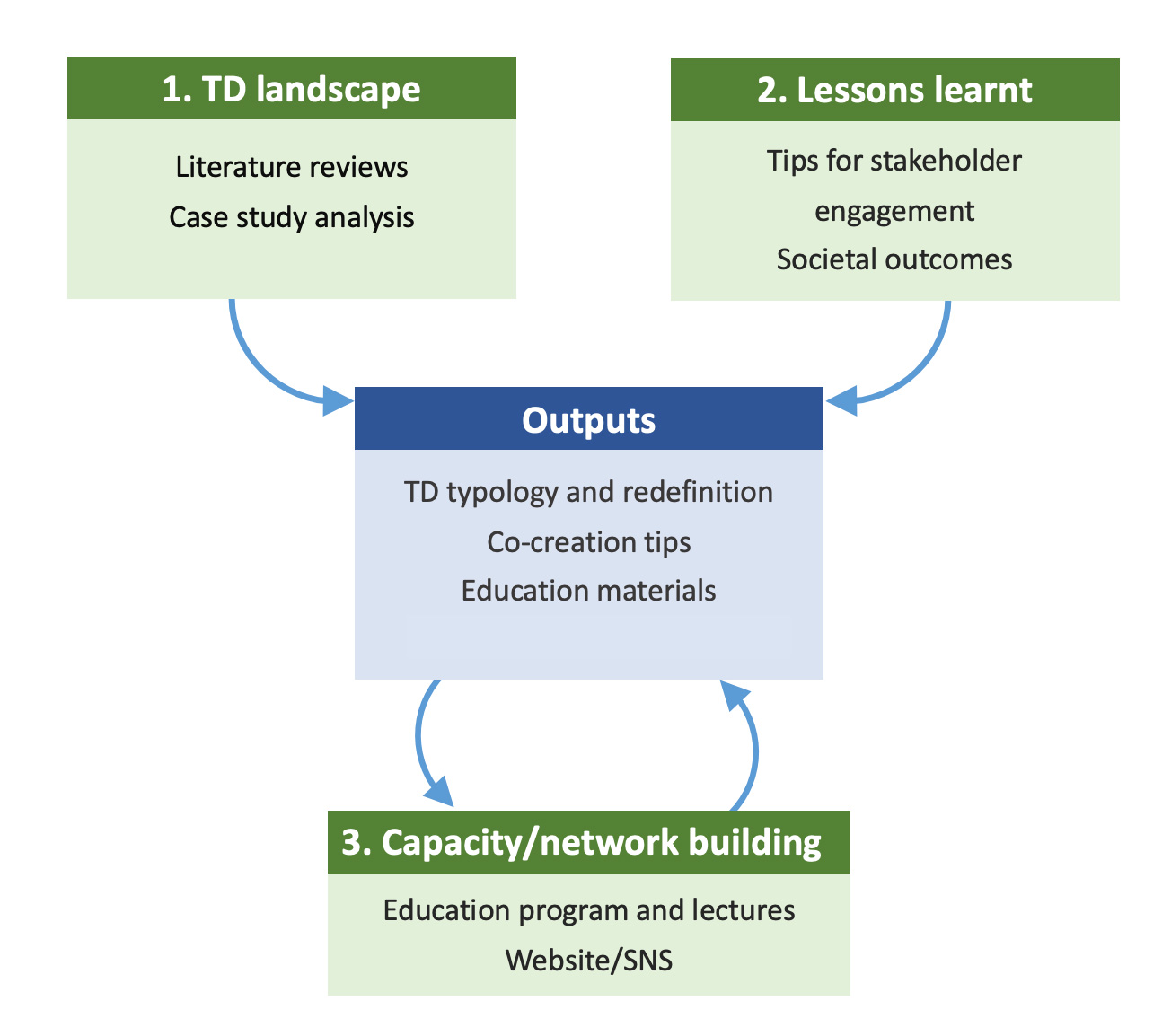
Project overview
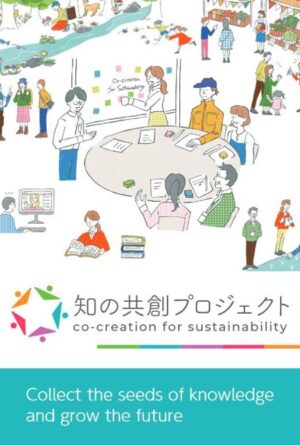
※PDF will open in some browsers

Yuko Onishi
Project Leader
Assistant Professor,
RIHN
Yuko Onishi holds a Ph.D. in environmental science from the University of Oxford (UK). Before joining RIHN, she worked for the Food and Agricultural Organization of the United Nations (FAO) and later worked for the National Institute for Environmental Studies (Japan). She is a member of the Regional Centre for Future Earth Asia.

Bonjun Koo
Researcher, RIHN
After working for a Korean government agency and an international organization, he obtained his Ph.D from Graduate School of Engineering at Kyoto University. His specialty is disaster risk management and environmental communication through participatory approaches.

Ria Lambino
Specially Appointed Associate Professor, RIHN

Rob Kuipers

Takako Okamoto


Takeshi Nishimura
Associate Professor, Sanyo Gakuen University

Tomohiro OH

Agnes Rampisela
Professor, Hasanuddin University

Alexandros Gasparatos
Associate Professor, University of Tokyo




